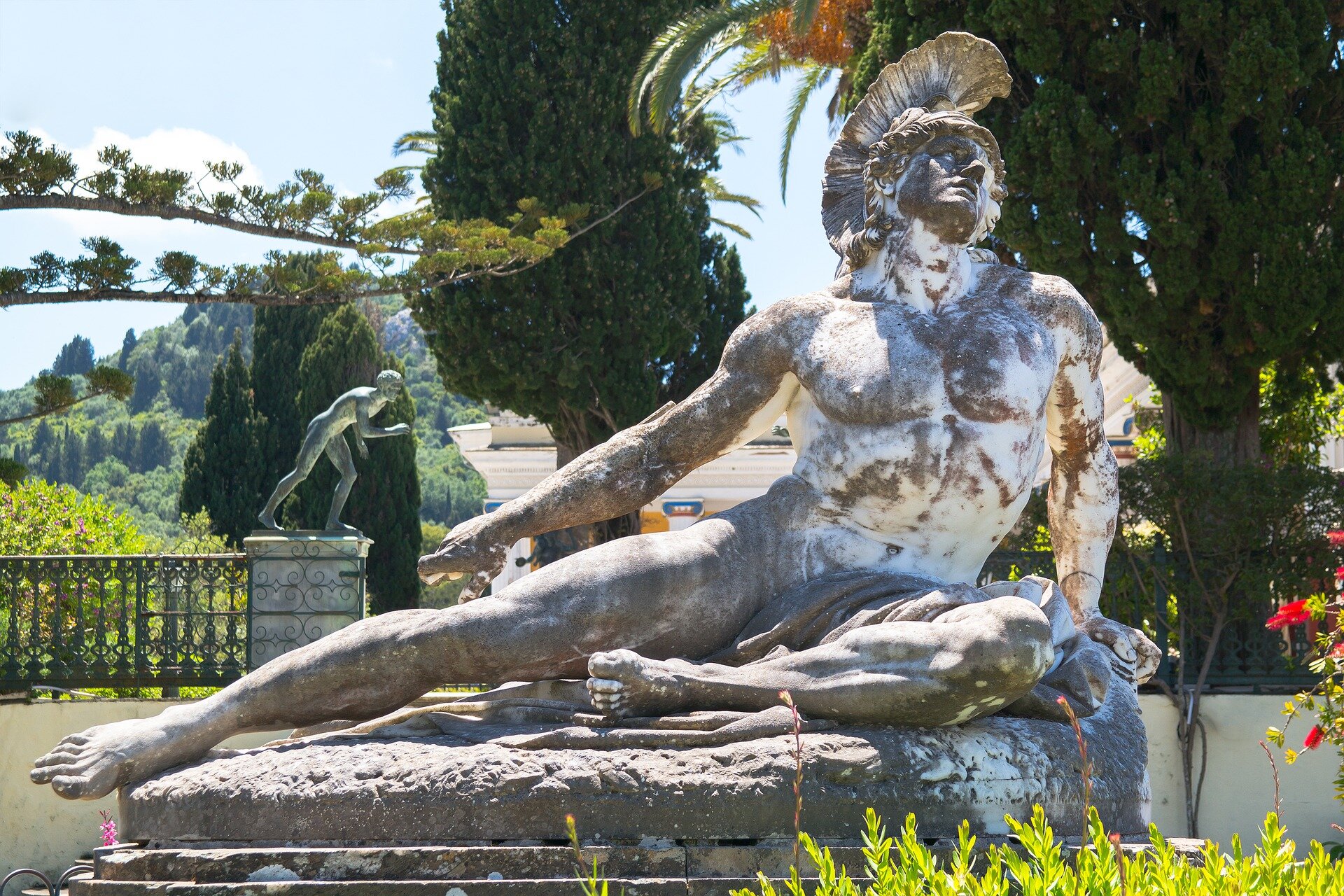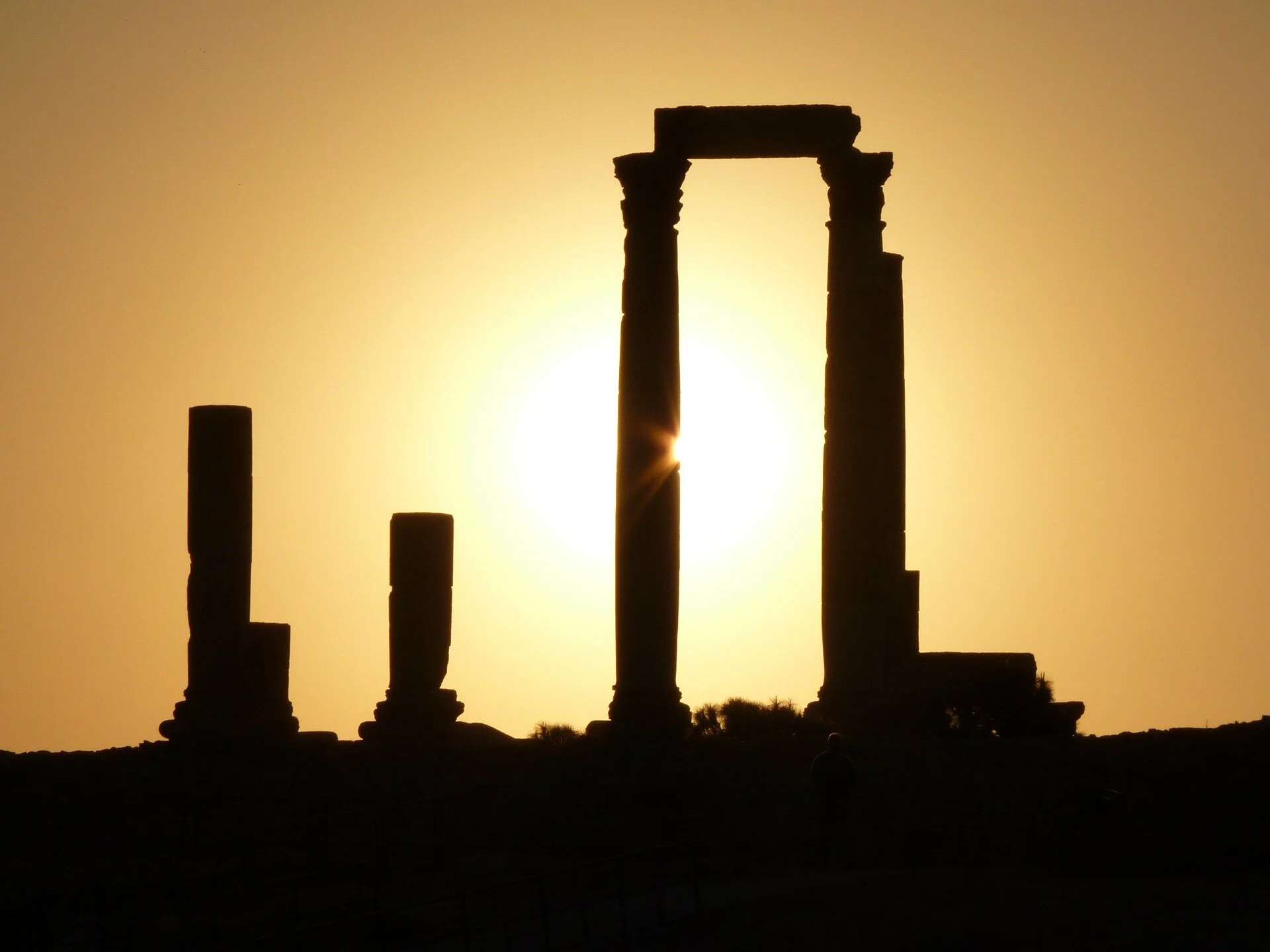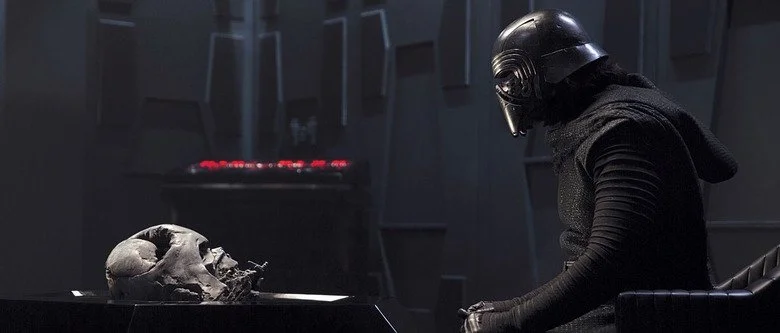The Short Life of Achilles: Choosing Greatness
In Book IX of The Iliad, the hero Achilles recounts his mother’s prophecy about his life—he will choose a short life of honor, glory, and eternal remembrance as a result of his deeds in the Trojan War or a long and peaceful but uneventful and ordinary life and thus be eternally forgotten:
Achilles: “My mother Thetis tells me that there are two ways in which I may meet my end. If I stay here and fight, I shall not return alive but my name will live for ever: whereas if I go home my name will die, but it will be long ere death shall take me.” (The Iliad, Book IX)
Although this story is often relegated to the realm of mythology, in reality each of us is presented with this choice every day—to strive for greatness, honor, glory, and to do something worthy of more than a footnote in history, sometimes at the cost of our own lives and limbs; or to play it safe, taking no risks and fighting no battles, living a long life, yes, but only to fade into obscurity and ultimately to be forgotten.
Each of us has to make a choice about what matters to us most in life, which end to strive toward, an ordinary life of home and hearth and warmth and family or an extraordinary life filled with memorable deeds and accomplishments, or at least the attempt at those deeds and accomplished, whether fully realized or failed. Even rejecting the choice is itself to choose the former, to make a choice not to aim for glory, not to take the chances or risks necessary to achieve something worthy of remembrance and song.
The Klingons in Star Trek know this. In fact, they are Achilles’s galactic spirit-brothers and sisters. In Star Trek, at least in Star Trek: The Next Generation and beyond, Klingons value honor and glory above all—above family, above happiness, above life itself. Klingons who have fought no battles and won no honor for themselves or their house are pitied, even shunned, while Klingon warriors who have fought many battles and won many victories over their enemies are praised and sung about through the ages in the Klingon Empire.
To our relatively genteel modern age, Achilles and the Klingons both strike us as immensely shallow. How could an early death and glory in war be valued even above one’s own life, family, or happiness? This is, perhaps, the gut reaction of 99 percent of contemporary Americans and readers of The Iliad. Yet, deep within, like the Klingons in Star Trek, their hearts secretly burn with desire for greatness, like young warriors untested in battle but longing for glory and honor.
We humans, like Achilles at dawn, aren’t satisfied by averageness and obscurity, no matter how much we’ve all been told that life, health, and family—i.e., the pursuit of happiness—are the path to a fulfilling life. Those who slither away from life itself in blissful obscurity are lying to themselves about being happy, feigning contentedness with their own small existence while living a life worthy only of pity by Greeks and Klingons alike. They secretly hear the cry of the warrior but have no cultural context in which to nurture that cry into a reality in their own lives or world, as Brad Pitt’s character, Tyler Durden, seems to imply in the movie Fight Club:
Tyler Durden: “I see all this potential, and I see it squandered. God damn it, an entire generation pumping gas, waiting tables—slaves with white collars. Advertising has us chasing cars and clothes, working jobs we hate so we can buy shit we don't need. We're the middle children of history, man. No purpose or place. We have no Great War. No Great Depression. Our great war is a spiritual war... Our great depression is our lives.” (Fight Club)
What exactly is the purpose of glory and greatness? What are they about? What is their end or telos? Their reason for being? That, however, is the wrong way to think about glory, honor, and greatness, at least for those who value them—whether Greek or Klingon. For those who value glory and honor over life and happiness, glory and honor are ends unto themselves. Even if the songs and epic poems written about heroes themselves are ultimately forgotten or go unread, as indicated by how few people have actually read The Iliad nowadays, at least those heroes did something worthy of song in the first place. In other words, great deeds are intrinsically valuable, regardless of fame, regardless of cultural memory, regardless of the consequences to life and limb—human striving has inherent value that cannot be reduced to mere utilitarian, practical, or even political value.
Whether the Greeks had won or lost their war with the Trojans is irrelevant. There were heroes on both sides, and they were all immortalized, either by name or anonymously in spirit. Only the cowards who refused to fight, both named and unnamed by Homer, are worthy of Greek pity. We relatively genteel, civilized Western philosophers need a dose of Achilles—some spirit, fire, and conviction—not about our own inner authenticity or even about some laudable but ultimately forgettable political aim, but about the now charmingly anachronistic but once-prized and once-championed quest for glory and honor, to achieve something worthy of song by some future Homer or Virgil, to carve out a name for oneself in the stones and cliffs of Mount Olympus itself, and to ensure ones own name reverberates through the ages, surpassing even the names of those heroes who came before, lighting the way for unborn future heroes still to come, from tomorrow until the end of human history.
Too often we pass the buck and look to younger generations to fulfill our secret hopes, wishes, and ambitions for greatness. There likely hasn’t been a parent alive, at least not one of worth, who hasn’t wondered what great deeds and accomplishments their newborn child will accomplish later in life, even while the parents themselves life an uninspired life of safety and security, absent of real risks and challenges, in the name of providing for their family while failing to provide a model for greatness for their children to look up to in the first place.
Yes, I want the next generation to achieve great deeds, even greater than my own perhaps, but only after I’ve had my time in the sun and set the highest possible bar for them to achieve in my own life and deeds, hopefully some of which are worthy of song and achieve genuine greatness, not merely “good” deeds" or “moral” deeds or after having lived a life of forgettable happiness, but an epic life that people are still talking about a thousand years hence, regardless of the struggle and pain and obstacles to be overcome, and regardless of the number of days my short life contains.
No, Achilles is not just a myth. Achilles lives in all of us, either consciously or latently. To be human is to face the choice Achilles once faced, to fight for glory or to cower in the safety of one’s own tent, to really live life or to hide from it, to be praised or to be pitied, to be remembered or to be forgotten. Most philosophers are content to contribute to philosophy; I want to dominate philosophy, to conquer it and carve my name alongside the great philosophers of the ages, but in bigger, bolder letters, like a philosophical “John Hancock” perhaps, and higher up the mountainside of history—higher even than the name of Achilles.







